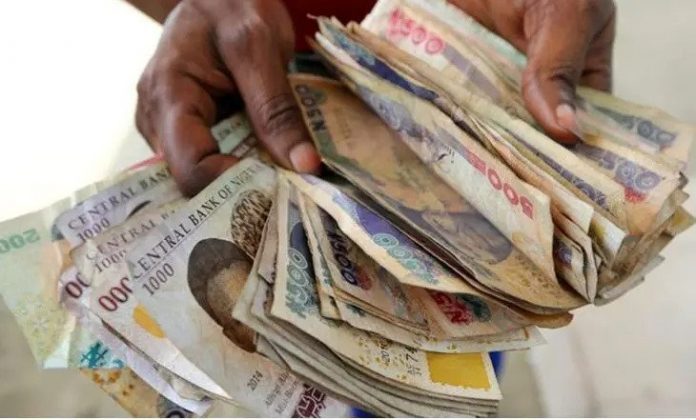The Nigerian naira continues to strengthen in the Investors and Exporters foreign exchange (FX) market on Tuesday with an increase in interest rates by the monetary authority after a difficult second half of 2022.
In an effort to combat the rising consumer price index, the Central Bank of Nigeria’s (CBN) monetary policy council increased the benchmark lending rate by another 100 basis points to 16.50% during its final meeting of the year.
Data from the FMDQ Exchange platform shows that the official window exchange rate for the naira increased as foreign currency demand outpaced market supply overall.
As a result, market participants in the FX market converted local money into N445; this represented a gain of 0.09% over the opening rate of N445. 38. Treasury Bill Yield Declines as 36% FX Spread Hits
Before the most recent increase, the foreign currency rate had reached N446 at the Nigerian Autonomous Foreign Exchange Fixing (NAFEX) market. A tiny gain might mean a lot for importers and makers of goods that play at the window, according to FX experts.
As traders waited for the apex bank’s judgment after erroneous trade that took place in the alternative FX window after the CBN announced the currency redesign, the exchange rate for the naira remained stable in the open market.
According to MarketForces Africa’s channel check on Tuesday, it was discovered that the FX spot rate closed between N770 and N780 in the black market In a recent report, the International Monetary Fund, IMF, said a unified and market-clearing exchange rate remains critical to enhancing confidence.
Foreign investment in the country has declined as investors have been unable to repatriate United States dollars abroad. This has triggered an increase in total FX backlog which if debited against the external reserves could pressure the nation’s FX market position.
“Continued FX shortages, a stabilized exchange rate regime, rising inflation, limited debt servicing capacity, and administrative restrictions on current transactions fuel devaluation speculations”, IMF told the Nigerian government.
It added that these factors hinder much needed capital inflows, encourage outflows and constrain private sector investment.
Also, the mission reiterated its past recommendations to move towards a unified and market-clearing exchange rate by dismantling the various exchange rate windows at the CBN accompanied by clarity on exchange rate policy and supportive fiscal and monetary policies.
In the medium term, IMF said the CBN should step back from its role as the main FX intermediator, limiting interventions to smoothing market volatility and allowing banks to freely determine FX buy-sell rates.














